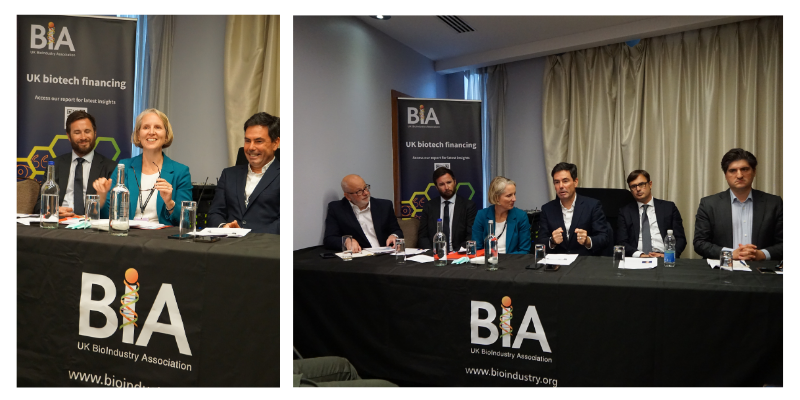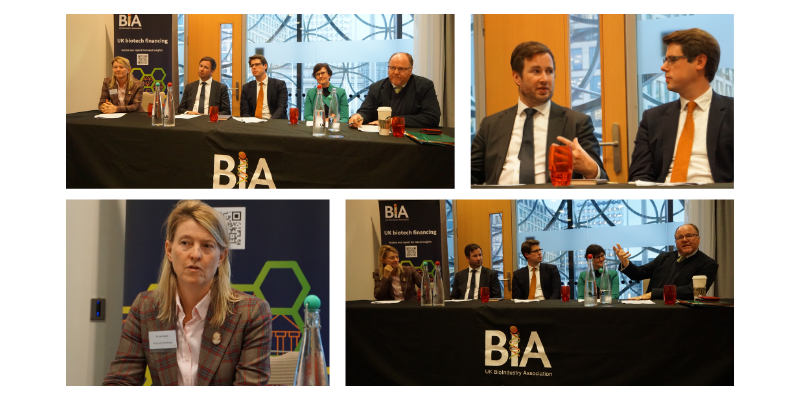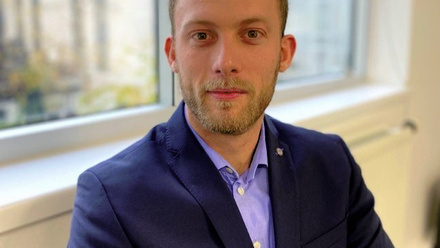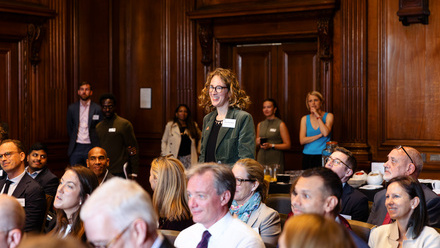Insights from the 2024 Party conferences

The BIA’s policy and public affairs team attended the conferences of the three major UK parties this year. This is a key point in the political calendar and allows us to highlight the sector through fringe events, meet policymakers, and get a sense of the political environment. Through fringe panels, discussions with influential figures, and participation in key sessions, we worked to advance the conversation around life sciences, investment, and innovation.
In this blog, Dr Emma Lawrence and Lewis Miles share insights from each conference and explore the emerging political priorities that could shape the future of our industry.
Labour in Liverpool
It was clear that the new Labour government is focused on the delivery of its five missions, with growth paramount, and many of the fringe events (including our own) supported this agenda.
We learned that the government will unveil its industrial strategy in October alongside the International Investment Summit on 14 October, before the key moment of the Budget on 30 October. Through the autumn and the winter, a ten-year plan for the NHS will be developed and a spending review for the parliament will be conducted.
With so many industries vying for attention, we were pleased to see references to the role of life sciences in Labour’s plans for mission delivery throughout the conference, including on:
Kick-starting economic growth: In her speech, Chancellor Rachel Reeves said, "Growth is the challenge, investment is the answer", succinctly outlining the government's approach to growth not as a return to austerity but as "investment in new industries, new technologies, and new infrastructure". This was a sentiment echoed across the conference, with many citing the importance of investment in life sciences to drive this growth.
The BIA hosted a panel on 'Unlocking pensions to deliver an innovative, high growth Britain', which continued the discussion on how the mobilisation of pension funds can provide the sorely needed investment boost to the life sciences, while also providing better returns for the UK saver.
BIA CEO Steve Bates OBE chaired the panel featuring the Pensions Minister Emma Reynolds MP, the new Labour MP for Mansfield Steve Yemm (who has experience of biotech and pharma on both sides of the Atlantic), and Kristen Albright, CEO of Prokarium, along with experts from the pensions and VC industries.

Building an NHS fit for the future: Health Secretary Wes Streeting emphasised the importance of life sciences and MedTech in delivering his ambitions for an NHS which is “able to share data, partner with innovators, and adopt new technologies at scale”. The importance of close collaboration between DHSC and DSIT was made clear, with Streeting speaking alongside Peter Kyle, Secretary of State for Science, Innovation and Technology, about the role of technologies including genomics and AI in reforming the NHS to improve health outcomes for patients.
These themes were picked up on a panel hosted by BIA member Moderna and chaired by Steve Bates, alongside former Deputy Chief Medical Officer Jonathan van Tam and Chi Onwurah MP, the new Chair of the Commons Science, Innovation and Technology Select Committee.
Creating a clean energy superpower: The role of industrial biotech in aiding the transition to Net Zero featured in sessions across the conference. However, our expert panel explored the full potential of biotechnology to revolutionise every sector of the economy during our event on deep biotech. Panelist Chi Onwurah recognised the UK’s huge strengths in R&D and advanced manufacturing, and CyanoCapture, who are engineering algae to sequester carbon, were just one of the exciting businesses that showed what is possible if we support these young companies to scale up in the UK.
Elsewhere in the conference, Science Minister Lord Vallance also used his platform to champion Engineering Biology stating: “We are in an era where you can actually engineer biology”, highlighting the potential of this technology to develop novel materials, food and medicines.

Liberal Democrats in Brighton
If there is anything to take away from the Liberal Democrat party conference, it is their excitement of having 72 Lib Dem members in parliament. Equipped with renewed energy over this achievement, they are determined to be a “strong, responsible and constructive opposition” that will present alternatives, rather than opposition. The idea to become the second-largest party in the country was felt to be a real possibility.
While they looked forward to supporting the new Labour Government where they share the values, they criticised the lack of detail behind Labour's recent policies and were ready to hold the government to account. Echoed throughout the conference was a strong focus on supporting small businesses and large infrastructure, placing the NHS as well as the climate and net zero agenda at the heart of Lib Dem policies. They made clear the economic and societal benefits of investing now to save the NHS, reminding the conference that Lib Dems are the original NHS champion.
The Business Day agenda highlighted their commitment to driving the climate agenda across all of government.
Despite the excitement, there was a distinct lack of any mention of the life sciences sector. The only clear nod to our sector came from Sarah Olney MP, Lib Dem Treasury spokesperson, at the business day. She highlighted the importance of effective R&D funding and the role of R&D tax credits for innovation, saying it was a mistake to make cuts to them. According to her, strong R&D investment and tax credits are key priorities in any industrial strategy, next to strengthening the UK's regulatory system, addressing the climate crisis, and creating a thriving manufacturing sector by investing in skills.
Conservatives in Birmingham
The Conservative Party conference in Birmingham was an unusual one. Not because it was the first held by the party as the Official Opposition in 14 years, but because it was the venue for a four-way leadership contest between Kemi Badenoch MP, Robert Jenrick MP, Tom Tugendhat MP and James Cleverly MP.
Life sciences, or innovation more broadly, wasn’t prominent in any of the candidates’ pitches to the party faithful. However, we did get the chance to ask Cleverly about his views on the sector. He said he was well aware of the high-standing UK life sciences held by our international partners from his time as Foreign Office Minister covering the Middle East, and he committed to championing it should he be elected.
BIA also kept up the pensions agenda in Birmingham. Former Science Minister George Freeman MP featured on the panel at our event on unlocking pensions for investment into UK life science.

Collaboration was the order of the day, with Freeman outlining the importance of cross-party efforts to deliver this agenda. He emphasised just how important this initiative is, stating that the only way for the UK to escape the structural issues and debt crisis it currently finds itself in is ‘economic growth via innovation’.
BIA Board member and CEO of Omass Therapeutics, Ros Deegan, demonstrated the huge potential of the sector, which was reinforced by Lisa Smith, CEO of Midlands Mindforge, a new VC firm in the region. As at Labour, Tim Fassam from Phoenix Group – the UK’s largest pension provider – said this potential is recognised and the pension industry is making progress to allocate to the sector. George closed the session by reiterating the BIA’s feelings on the matter, that this is ‘the most exciting public policy issue of the moment’.






